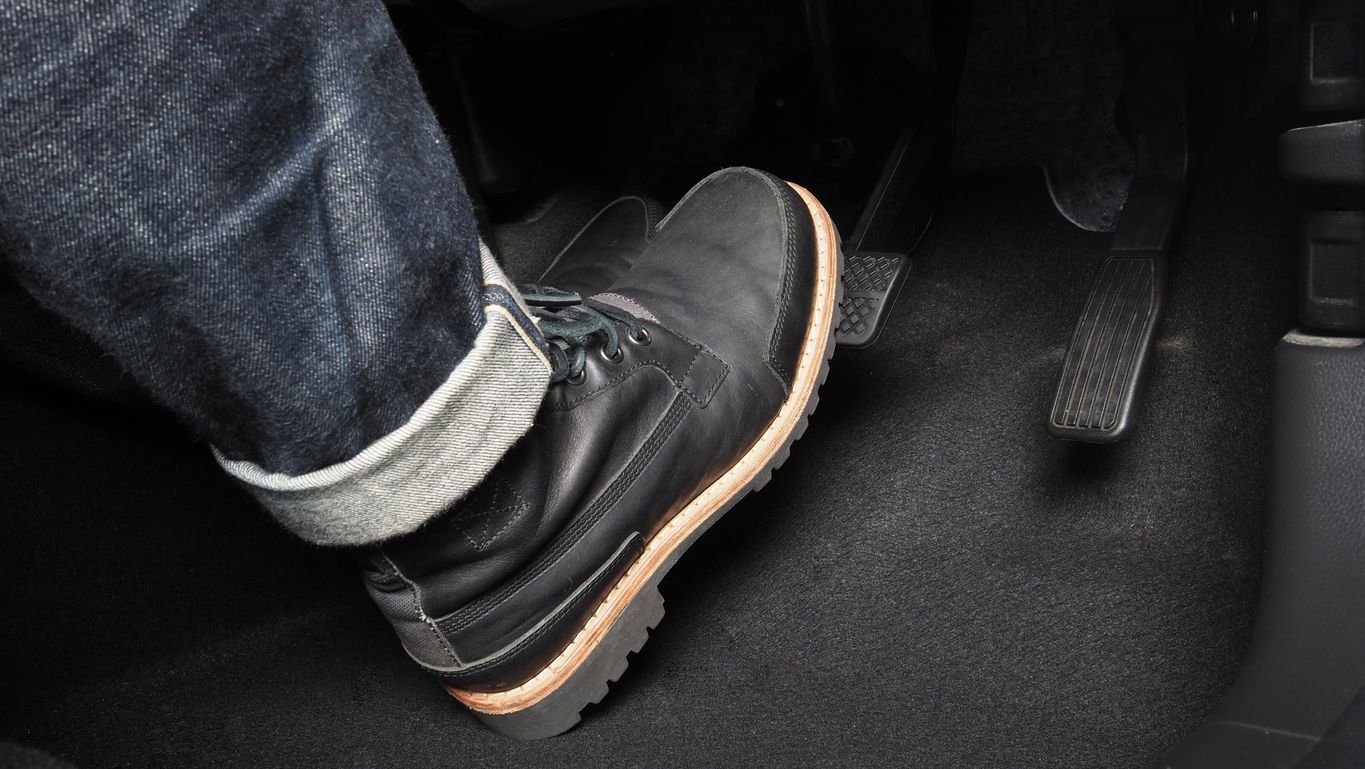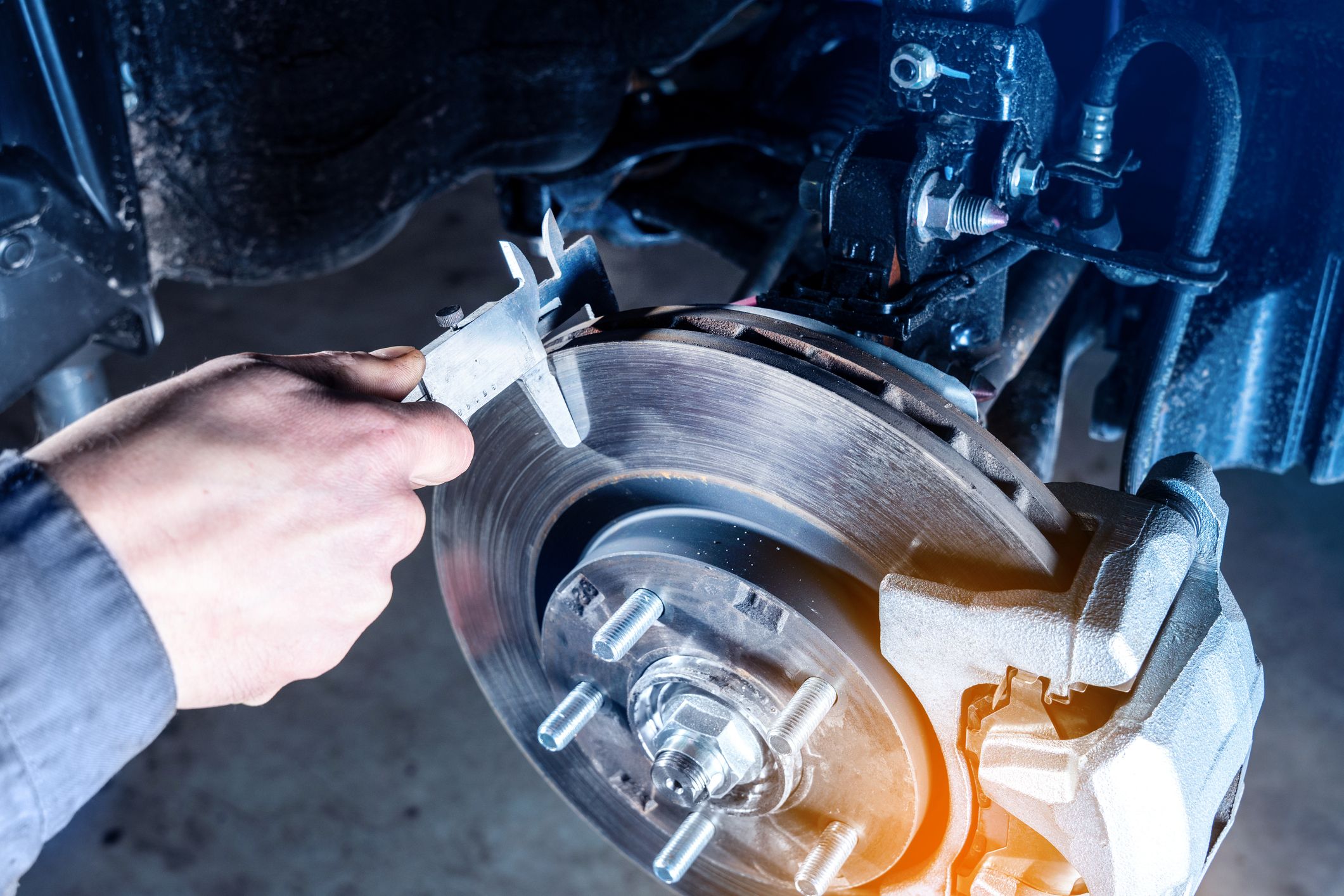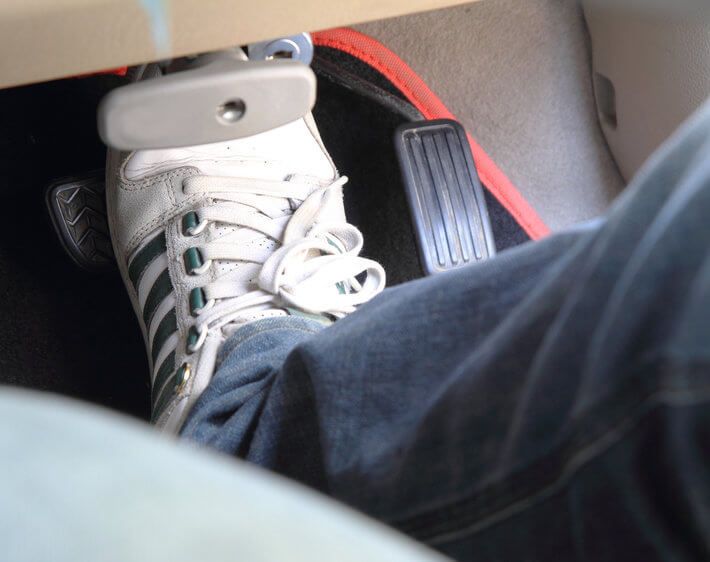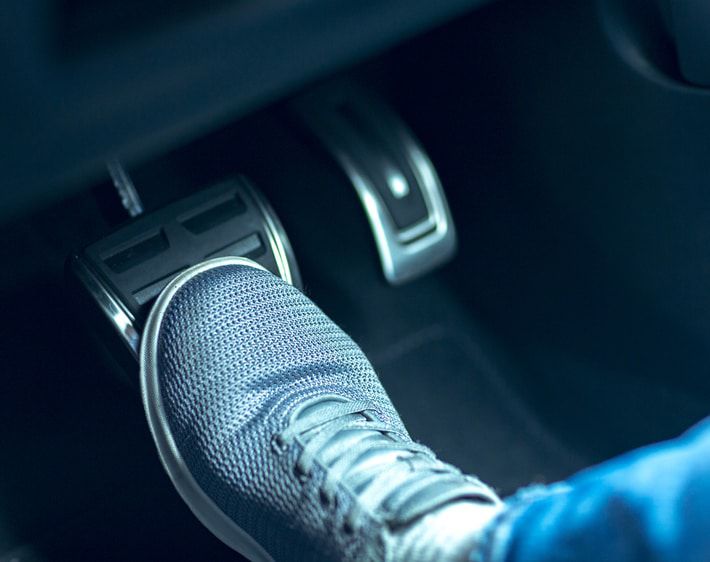From seemingly harmless noises to a shaky steering wheel, brake problems are no joke. Many factors can cause brake system issues, and if ignored for too long, some can lead to some pretty serious safety concerns. If you want to troubleshoot your brake problems at home, use the process of elimination with this brake system troubleshooting guide before getting them serviced.
Low Brake Fluid
An illuminated brake light could signify low brake fluid, and if left for too long, this may lead to serious braking system or safety-related issues. The brake system must have a certain amount of fluid to perform correctly. Low fluid in the system can severely impact stopping distance, and/or it could mean the brake pads are seriously worn.
Problem With Anti-Lock Brakes
Anti-lock braking systems are a key safety component of many of today's vehicles. They can help prevent your brakes from locking up during emergency stops or prevent your tires from losing traction on slick roads while braking. In some cases, you'll know there's a problem with the anti-lock braking systems if you see a warning light that says, "ABS."
Problems can crop up with your anti-lock brakes for several reasons, including a damaged ABS tone ring or faulty speed sensor. To troubleshoot, perform a diagnostic test to determine what's triggering the ABS warning light.
Spongy Brakes
When you're unable to firmly apply the brakes, it could be the result of spongy brakes, also known as squishy or mushy brakes. Since the brakes are an essential safety feature of your car, you don't want to risk getting into an accident by letting spongy brakes go unchecked by a professional technician.
Causes of spongy brakes may include:
Air in the brake lines. When there's air in the brake lines, it can lead to soft braking. The reason may be a brake fluid leak or low brake fluid levels.
Damage to brake lines. Rust can cause brake lines to become brittle, leak, or even break. Furthermore, damage sustained in a car crash can cause brake lines to bend and collapse.
Low brake fluid. Not having enough brake fluid or having old brake fluid can lead to problems with the brakes themselves.
Master Cylinder issues. If the master cylinder isn't sending brake fluid to where it's needed, it may make it more difficult to stop your car when you step on the brake pedal.
Shaky Steering Wheel
If you apply the brakes and the steering wheel starts shaking, it could signal a problem with the brakes.
Common culprits of this problem include:
Worn brake pads. If anything is wrong with the brake pads, you might feel it in the steering wheel. This could be the result of old, worn, or dirty brake pads that can't properly grip the rotor, causing the steering wheel to shake.
Dry guide pins. If your car won't easily stop and your steering wheel vibrates, the culprit could be dry guide pins. The guide pins are part of the brake calipers. They guide the brake pad to the rotor. Dry or corroded brake pins can cause the calipers to get stuck or the brake pads to press against the rotor at an incorrect angle. All of this can trigger shaky steering.
Warped rotors. Is the brake pedal pulsing? Is the steering wheel wobbling? If so, the brake rotors may need some attention. Over time, rotors can become worn, warped, or uneven, leading to braking and steering that aren't smooth.
Strange Noises
Screeching, grinding, squealing, and other obnoxious noises could indicate that your brake pads and shoes need to be inspected. Don't ignore these sounds, as worn brake pads or shoes can affect stopping distance and may leave you with a hefty repair bill if neglected for too long.
Don't Risk Driving with Bad Brakes
The best way to ensure your vehicle's brakes are in great working order is by getting a brake system inspection and any necessary repairs done by a professional technician. Visit your nearest Firestone Complete Auto Care for a free brake inspection* today!
*Brake service costs extra.



